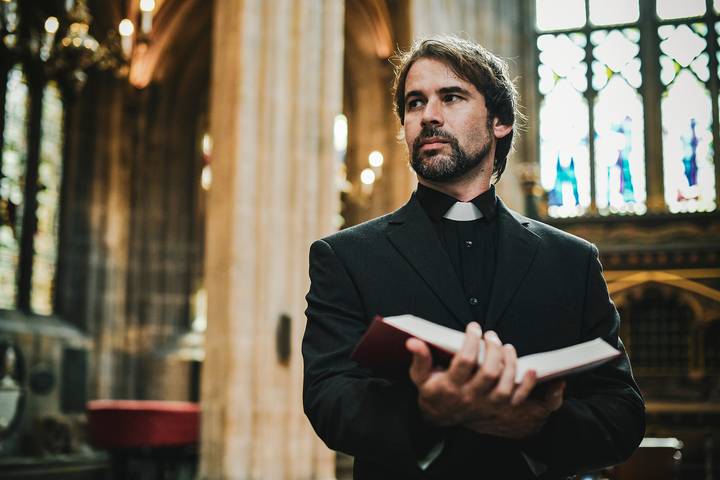
Church leadership roles are vital in steering and moulding a faith community. These roles involve a wide variety of responsibilities and tasks that contribute to the overall performance and growth of the church.
Every leadership role offers unique abilities and viewpoints, from pastors and ministers to elders and deacons. They provide spiritual guidance, coordinate worship services, give pastoral care, and supervise numerous ministries within the church. Collectively, they establish a robust foundation for the congregation and cultivate a sense of unity and purpose.
Productive church leadership roles are crucial for faith community development and well-being. They contribute various experience, expertise, and spiritual wisdom that guides the congregation toward a more profound comprehension of their faith. These leaders have excellent communication and interpersonal abilities, allowing them to connect with individuals personally and offer valuable guidance.
Church leadership duties encompass an extensive array of tasks that guarantee the seamless operation and vigour of the faith community. These responsibilities might involve supervising worship services, administering the sacraments, offering pastoral counselling, leading Bible studies, coordinating community outreach programs, overseeing finances, and making crucial decisions in consultation with the congregation.
Here are twelve church leadership roles and responsibilities:
- Church Leadership Role #1: Pastor
- Church Leadership Role #2: Minister
- Church Leadership Role #3: Elder
- Church Leadership Role #4: Deacon
- Church Leadership Role #5: Worship Leader
- Church Leadership Role #6: Youth Pastor
- Church Leadership Role #7: Discipleship Mentor
- Church Leadership Role #8: Church Administrator
- Church Leadership Role #9: Missions Coordinator
- Church Leadership Role #10: Music Director
- Church Leadership Role #11: Outreach Coordinator
- Church Leadership Role #12: Prayer Team Leader
Church Leadership Role #1: Pastor
A pastor holds a crucial leadership position within a church community. He is entrusted with its members’ spiritual guidance and pastoral care. The pastor cultivates the faith community like a shepherd tending to his flock. He offers support and supervises various facets of church life.
Often possessing extensive theological education, they deliver sermons, lead worship services, administer sacraments, perform weddings and funerals, and provide pastoral counselling. As a spiritual beacon, the pastor works intimately alongside the congregation to encourage growth, facilitate discipleship and nurture a thriving faith community.
Pastor Responsibilities
Pastors have a broad spectrum of responsibilities that contribute to the church’s and its members’ overall health and prosperity. They help guide spiritually and educate congregation members by ensuring solid biblical teachings and theological insights.
Pastors offer guidance, solace, and support to individuals and families during joy, grief, or upheaval moments. They spearhead various church ministries such as youth initiatives, small groups, and missions while coordinating volunteers for effective service.
In addition to these duties, pastors undertake administrative tasks like supervising church staff, managing budgets, and collaborating with church leadership in decision-making processes aligning with the church’s vision and mission.
Church Leadership Role #2: Minister
A minister is pivotal in church leadership, imparting spiritual direction, pastoral care, and backing to the congregation. Though “minister” is frequently used synonymously with “pastor”, it may also apply to those who are not ordained yet still function in a ministerial role.
Ministers often spearhead worship services, present sermons, conduct religious ceremonies, and counsel individuals and families within the faith community. They are instrumental in nurturing spiritual development, creating meaningful worship experiences, and liaising between the divine and the congregation.
Minister Responsibilities
Ministers’ duties are diverse and encompass numerous facets of church ministry and community outreach. They are accountable for examining and deciphering religious texts, devising and delivering sermons that enlighten and engage, and steering congregational prayers.
Ministers also offer pastoral counselling by providing guidance, assistance, and spiritual wisdom to individuals dealing with personal obstacles or seeking spiritual guidance. They might organize and direct ministries such as discipleship programs, small groups, and community service ventures.
Furthermore, ministers contribute to fostering a sense of community and unity within the congregation. They promote inclusiveness and inspire members to immerse themselves in church life actively.
Church Leadership Role #3: Elder
In the church, elders occupy a prominent leadership position. They are often regarded as experienced and respected individuals who offer the congregation wisdom, guidance, and oversight. Typically selected based on their spiritual maturity and capacity to act as mentors, these leaders play an integral part in the overall decision-making process of the church.
Elder Responsibilities
Elders shoulder numerous critical responsibilities within the church structure. Charged with caring for the congregation’s spiritual needs, they offer pastoral counsel and support while also tending to their role as spiritual shepherds. They often teach and preach, sharing biblical knowledge and wisdom with the community.
Administering the sacraments, participating in prayer ministries, and delivering guidance and discipline when needed are among their many tasks. Beyond that, elders serve as inspirational figures for their congregation by exemplifying lives steeped in faith, integrity, and devotion to service.
Elders might supervise diverse church ministries and guide younger leaders through mentorship programs. They might also work closely with fellow church leaders to promote their spiritual community’s overall health and growth.
Church Leadership Role #4: Deacon
Deacons play an essential part in the church, embodying both service and grace as ministers of mercy. These devoted individuals help address the congregation’s tangible and physical necessities.
Although their specific duties may differ according to various church customs, deacons are typically recognized for their compassionate service and support. Working closely with pastors and elders, deacons enhance leadership by tackling practical matters and attending to church members’ needs.
Deacons Responsibilities
Deacons’ responsibilities encompass acts of service, empathy, and support within the church and the broader community. They might organize and supervise initiatives related to hospitality or providing care for the sick and elderly while also assisting those in need.
Deacons often create and facilitate outreach programs such as food drives, clothing donations, or neighbourhood service projects. They may even have a hand in managing and distributing church resources, ensuring that the congregation’s demands are met effectively and efficiently.
Deacons help establish a crucial connection between the church and society by engaging with individuals beyond church boundaries. They extend warm-hearted acts of kindness and service to those who require them.
Church Leadership Role #5: Worship Leader
Worship leaders usher the congregation into meaningful and transformative worship experiences. These individuals are crucial in cultivating an environment that nurtures a profound connection with the Divine. They inspire the assembly to worship through song, prayer, and contemplation.
By leveraging their musical talents, spiritual intuition, and leadership prowess, they establish a respectful atmosphere where the congregation can connect with God’s presence.
Worship Leader Responsibilities
Worship leaders tackle numerous aspects of worship preparation and implementation. They handpick and prepare suitable songs, hymns and other music pieces that resonate with the service’s theme and message.
Frequently leading the congregation in song, their vocal skills and musical expertise promote active engagement. Collaborations with fellow musicians, singers, and technical crews also contribute to seamless worship transitions and the proficient use of sound, lighting, and visual components.
Besides overseeing the musical elements, worship leaders occasionally provide short teachings or exhortations that facilitate moments of introspection. This steers the congregation towards expressing their adoration and gratitude to God.
Church Leadership Role #6: Youth Pastor
A youth pastor is a person who mentors and guides younger members of a church community. Focusing on teenagers and young adults, they act as spiritual leaders, helping them traverse the hurdles and intricacies of their faith journey. This is at this crucial stage of life.
The purpose of a youth minister is to connect with youngsters, foster relationships, and establish a secure, nurturing environment. This is where they can flourish in their faith, delve into their beliefs, and form a personal bond with God. Often viewed as relatable role models, youth pastors lend a listening ear, providing guidance, inspiration, and spiritual advice to young congregation members.
Youth Pastor Responsibilities
Youth pastors deal with adolescent individuals’ comprehensive growth and spiritual development. They devise and spearhead programs, happenings, and pursuits tailored to youth’s particular needs and interests, weaving in elements of worship, instruction, discipleship, and community enhancement.
Youth pastors might coordinate regular youth group get-togethers, Bible studies, retreats, and mission trips that allow young people to deepen their grasp of God’s Word. These opportunities encourage genuine dialogue and foster authentic connections among peers.
By investing in the lives of these young folks through intentional mentorship, youth pastors offer insights on matters involving faith, morals, relationships, and personal advancement.
Church Leadership Role #7: Discipleship Mentor
A discipleship mentor is an indispensable guide in the spiritual journeys of individuals seeking to become devoted followers of Jesus Christ. Acting as a supportive companion, a mentor offers guidance, encouragement, and reinforcement. This helps mentees deepen their faith, enhance their grasp of the Scriptures, and cultivate a genuine connection with God.
Discipline mentors exemplify a life of discipleship while fostering spiritual growth and transformation in their mentees, joining them on their faith path.
Discipline Mentor Responsibilities
Discipline mentors build one-to-one or small group relationships with people yearning for discipleship progress. Mentors build strong bonds of trust by investing time and energy in understanding their mentees. This creates a secure and receptive space for growth and vulnerability.
Discipleship mentors impart spiritual direction and accountability as they support mentees through diverse aspects of their faith journey. These aspects include prayer, Bible study, worship, and service. Sharing valuable insights, personal anecdotes, and practical wisdom enables mentors to assist mentees in implementing biblical concepts into their everyday lives.
Church Leadership Role #8: Church Administrator
A church administrator holds a significant position behind the scenes, concentrating on proficiently coordinating numerous managerial aspects within a church. They supervise everyday operations and offer organizational aid to ensure the church seamless functioning.
Church administrators are crucial in empowering the church’s ministry and mission by taking care of logistical, financial, and administrative responsibilities. This allows other church leaders to concentrate on their specific areas of expertise.
Church Administrator Responsibilities
The obligations of a church administrator cover an extensive range of duties that contribute to the effective operation of the church. They might manage tasks related to facility management, such as organizing and synchronizing church building, room, and equipment usage.
Church administrators frequently oversee finances, including budgeting, accounting, and financial reporting, ensuring transparency and responsibility in managing church resources. They may also supervise church programs and ministries, assist with event organization, coordinate volunteers, and maintain communication within the church community.
Church Leadership Role #9: Missions Coordinator
A missions coordinator is a steadfast person who orchestrates and manages church mission and outreach endeavours. This individual serves as a conduit between the church and the wider community. He strives to pinpoint, strategize, and implement mission projects and initiatives harmoniously with the church’s mission and principles.
Missions coordinators nurture a missional mindset among the congregation. This is done by motivating and preparing members to participate in local and global outreach actively. In addition, it creates avenues for them to leave a positive mark on the world.
Mission Coordinator Responsibilities
Mission coordinators span many mission planning, organization, and implementation dimensions. Working alongside church leaders, ministry teams, and volunteers, they identify and prioritize mission opportunities aligning with the church’s vision and objectives.
The missions coordinator may investigate and forge connections with community organizations, nonprofits, and missionaries to address various social, spiritual, and humanitarian needs within the community. They may also arrange mission journeys both within Canada and internationally, offering logistical assistance, synchronizing team undertakings, and encouraging cultural empathy and comprehension.
Church Leadership Role #10: Music Director
Music directors hold a significant leadership position in a church. He is responsible for directing and managing worship services and church gatherings. They hold a crucial role in cultivating a spirit of praise and worship. They use their musical proficiency and leadership abilities to lead the congregation in sincere expressions of reverence.
Working closely with other musicians, singers, and worship teams, the music director ensures a harmonious and captivating worship experience. This elevates and motivates the assembly.
Music Director Responsibilities
Music directors cover diverse facets of the music ministry inside the church. They are responsible for picking and orchestrating suitable songs, hymns, and musical compositions that correspond to the theme and objective of the worship service.
The music director steers rehearsals, offering musical guidance to musicians and vocalists, helping them hone their talents and yielding compelling performances. Additionally, they may manage the organization of music-related technical elements like sound systems, instruments, and audiovisual aspects, ensuring they blend seamlessly into the worship encounter.
Church Leadership Role #11: Outreach Coordinator
As a crucial connector between the church and the local community, the outreach coordinator is key in planning and executing outreach initiatives. Their role aims to address others’ needs and spread the word of faith.
This job is driven by their immense passion for helping those in need, marginalized, or seeking spiritual guidance. Outreach coordinators craft strategies and programs that engage with the community, foster relationships, and offer acts of kindness and empathy.
Outreach Coordinator Responsibilities
Outreach coordinators are responsible for various community involvement and assistance tasks. Their work involves recognizing and understanding the problems and obstacles the local community faces. They cooperate with church authorities, volunteers, and community groups to devise initiatives that address these needs efficiently.
To serve the community’s physical needs, outreach coordinators may arrange events such as food drives, clothing donations or health and wellness clinics. Additionally, they may organize outreach initiatives offering counselling, mentorship, or other types of support for individuals and families.
Church Leadership Role #12: Prayer Team Leader
A prayer team leader is pivotal in church communities. He orchestrates the prayer ministry and fosters a spiritual communication environment. Guiding their prayer team in thoughtful intercession, the prayer team leader cultivates prayerfulness within the congregation. In addition, they champion individual connections to the divine through personal conversations with God.
Prayer Team Leader Responsibilities
Taking on varied aspects of prayer ministry within the church, a prayer team leader’s duties are rich and varied. They spearhead and arrange regular prayer gatherings, offering direction and a framework for these sacred sessions.
They may also coordinate unique events or initiatives on spiritual communication. These include overnight vigils, concentrated prayer campaigns or dedicated prayer seasons. Nurturing spiritual growth in each congregant, the prayer team leader provides resources, teachings and opportunities for fostering deeper connections with God through prayer.









